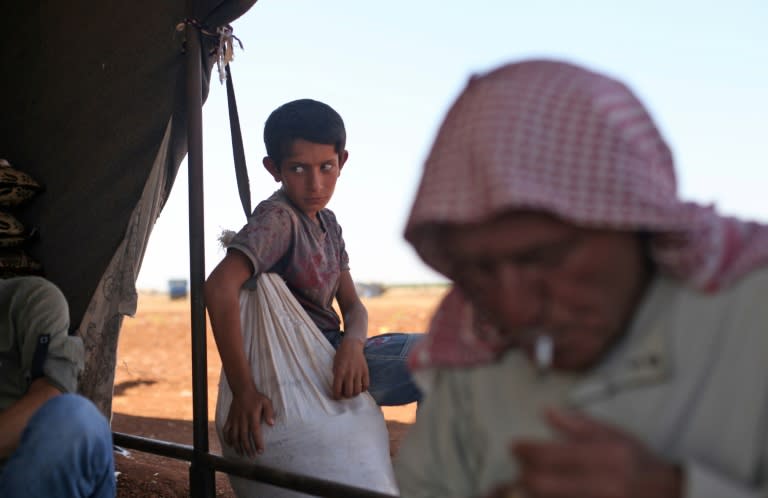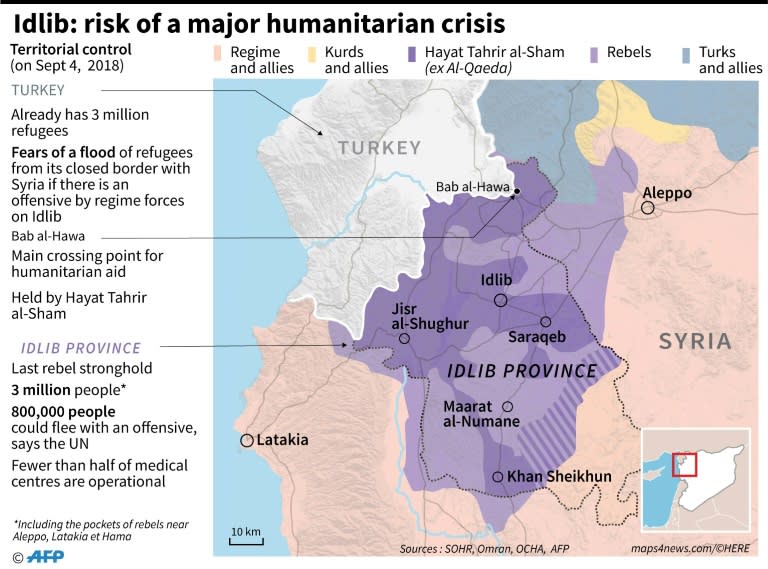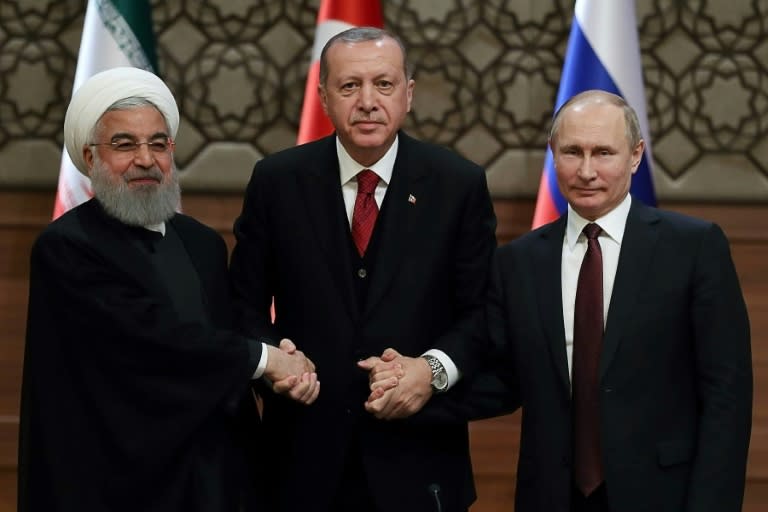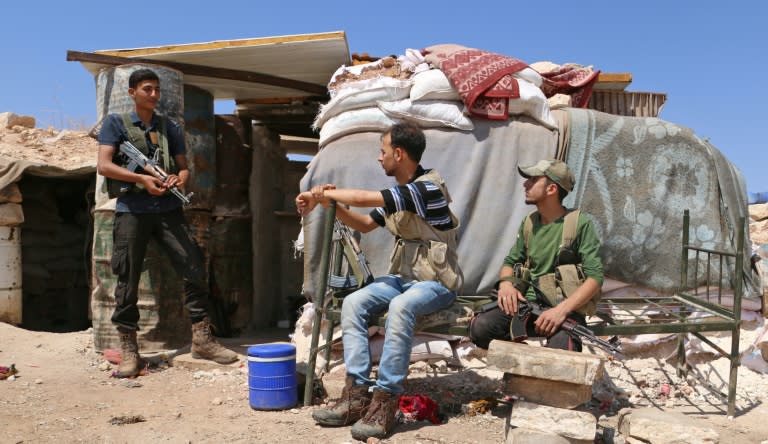Hundreds flee as Syria, Russia hit rebel stronghold Idlib
Hundreds of Syrian civilians fled Idlib province on Thursday as the presidents of Russia, Iran and Turkey readied for last-ditch talks on the fate of the last rebel bastion. Government forces and their allies have been massing around Idlib, where aid groups fear what could be the last major battle of Syria's seven-year civil war may also prove its deadliest. Western powers have warned against a bloodbath but Damascus and Moscow are adamant that an offensive is needed to root out the jihadists who dominate the province. Sporadic bombardment has targeted armed groups on Idlib's fringes in recent days, and on Thursday families began streaming out of their battered hometowns to seek safety elsewhere. Trucks piled high with mattresses, metal pipes, plastic tanks and wicker mats could be seen heading towards camps near Syria's northern border with Turkey. "We left because of the shelling, the crazy indiscriminate shelling," said Abu Naser, who fled on the back of one such truck. "We don't know where to head now. So many people fled -- what are we supposed to do, sit under the shelling and airplanes? Another group of hundreds of families fled the province's southeast for other rebel-held areas, said the Syrian Observatory for Human Rights. Observatory head Rami Abdel Rahman said "around 180 families, or some 1,000 people" had escaped those areas since Wednesday night, heading to rebel territory further east. They were fleeing Syrian artillery and Russian bombardment on villages that lie close to government-held areas and would therefore be most vulnerable to the early phase of an assault. Artillery fire also killed one civilian and wounded six more, added the Britain-based war monitor. - 'Pull back from the brink' - The number displaced so far is tiny compared with the 800,000 that the United Nations fears may be thrown onto the roads, more than a quarter of the rebel zone's population. Warning of the risks of a regime assault on Idlib, French Foreign Minister Jean-Yves Le Drian described the rebel-held enclave as a "ticking time bomb, both in humanitarian and security terms". Save the Children said more violence would have "devastating consequences" for Syria's young. "During seven years of war, these children have seen and experienced things that no child ever should," said its chief Helle Thorning-Schmidt, calling on the warring parties in Idlib to "pull back from the brink". The UN, world powers, and aid groups hope a summit on Friday between the presidents of Russia, Iran, and Turkey -- the three main powerbrokers in Syria -- can avert an assault. The trio will meet in Tehran as part of the ongoing Astana process aimed at ending the conflict, which has killed 350,000 people and driven more than 11 million from their homes since it erupted in 2011. Russia says its priority is to eradicate jihadist groups from Idlib, with the foreign ministry pledging on Thursday that it would continue to "kill terrorists" across Syria. "We have killed, we are killing and we will kill terrorists... whether that be in Aleppo, Idlib or other parts of Syria," said spokeswoman Maria Zakharova. Turkey, meanwhile, already hosts three million Syrian refugees and wants to avert an assault that would push more towards the border. Ankara is under pressure from Russia to exert its influence on rebels in Idlib, but the province is dominated by the more powerful and jihadist-led Hayat Tahrir al-Sham (HTS) alliance. "We can work together to render those (radical groups) ineffective. The solution is not to bomb or attack all over Idlib, without any distinction," Turkish Foreign Minister Mevlut Cavusoglu said on Wednesday. - Rescue centre hit - Turkish President Recep Tayyip Erdogan said before heading to Iran that an offensive could trigger "a serious massacre", while his US counterpart, Donald Trump, said the outcome of the Tehran summit would be crucial. "Because the world is watching. That cannot be a slaughter. If it's a slaughter, the world is going to be very, very angry. And the United States is going to be very angry, too," he said on Wednesday. Russia has hinted the Idlib offensive could be conducted in several phases, giving negotiations a chance to continue in parallel. The next few days could see the launch of an assault restricted to peripheral areas, focusing on the strategic north-south M5 highway and flushing out rebels responsible for drone attacks on Russia's Hmeimim air base. On Thursday, rescue workers said their headquarters in a southern part of Idlib province was forced to close after being damaged in air strikes. Mossab al-Qadur, the head of the centre in Al-Tamana, told AFP he was inside the building when it was struck by dozens of shells and rockets. "When the shells stopped, we quickly got out. About 15 minutes later, a Sukhoi 24 (Russian jet) targeted the centre, which put it out of service," said Qadur.





